Earlier this year our book ‘The Dynamics of Health in Nepal’ was published by Himal Books for Social Science Baha in Kathmandu.1It is an edited collection covering a range of current health topics in Nepal, including issues such as maternal health, HIV/AIDS, sexual health, road traffic accidents, non-communicable diseases and the role of the media and migration.
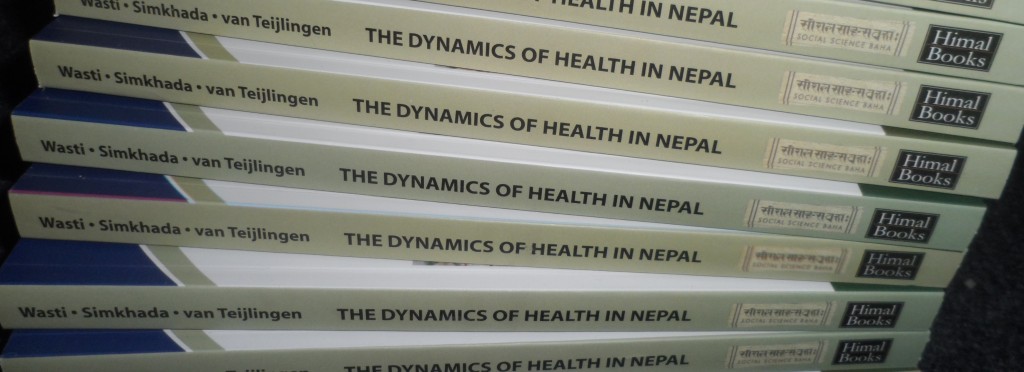
One of us had published several books, with for example international publishers such as Elsevier, Routledge (part of Taylor Francis) and Oxford University Press.2-4 All editors authors are UK PhD graduates from the universities of Aberdeen (van Teijlingen), Southampton (Simkhada) and Sheffield (Wasti) respectively. All three of us were based in the UK at the time of conception of the book. Padam Simkhada was Senior Lecturer in International Health at the University of Sheffield, Edwin van Teijlingen still is professor at Bournemouth University and Sharada Prasad Wasti was a PhD student at ScHARR (University of Sheffield). So it made sense to talk to publishers in the UK, which is what we did. However, it rapidly became clear that we could get a deal for an expensive hardback book, a book which would sell way above what the average academic in Nepal could afford. After some soul searching we decided to look into getting the book published in Nepal.
One of the advantages of publishing Nepal is the same most outsourcing to low income-countries, namely it keeps the production costs down. Rather than increasing our profit margins by keeping the low production costs, as it the typical case in the global market, we used this to keep the retail price low. The book retails for 800NR (about £5.50) in Nepal which means it is affordable to academics and postgraduate students in Nepal. Similar books from international publishers sell for at least £20!
We had some trepidation about the potentially quality of the book before we signed the contract with Social Science Baha. These low expectations were based on the quality of printed text books we had seen for sale on small stalls outside the Kittipur Campus of Tribhuvan University. One of these shoddy looking books was based on lecturers given by our Nepalese colleague Prof. Dr. Bhimsen Devkota. When we passed one of these stalls many years ago he pointed at a particular book and said: “See that book, a student who had attended my lectures two years in a row, copied all I said, and the materials I handed out, all of it word for word. That student then got it published as a book.”
However, our expectations were wrong. From the outset the publishing process was impressive. Social Science Baha employed a very professional proof-reader/copy-editor who picked up a lot of minor style and language issues even after we had most of the chapters professionally proof-read in the UK. The classic example of the thoroughness of his checking was the name of one for the chapter contributors ‘Sally Woodes Rogers’, he came back to us and said, “But her name on the web pages of the University of Aberdeen is ‘Sarah’ not ‘Sally’, are you sure?” At which point we had to assure him that ‘Sarah’ was her correct birth name but that she wanted herself to be known as ‘Sally’.
The final version of our book looks very good. The cover is beautifully printed; the font, chapter lay-out and overall style are of a very high quality. Our book has the feel of a typical academic book published in Europe or North America. There is really nothing about it that says this book is published in a low-income country.
The book has been well received at its launch in Kathmandu in January 2015. The first published book review was also very complementary.5 Last but not least, having produced a great looking book, for us the final feel-good factor is that we agreed to donate all profits from the sale of the book to the charity Green Tara Nepal.
Prof. Edwin van Teijlingen
Prof. Padam Simkhada
Dr. Sharada P. Wasti
References:
- Wasti, S.P., Simkhada, P.P., van Teijlingen, E.(eds.) (2015)The Dynamics of Health in Nepal,Kathmandu, Nepal: Social Science Baha&Himal Books
- DeVries, R., Benoit, C., Teijlingen van, E., Wrede, S. (eds.) (2001) Birth by Design: Pregnancy, Midwifery Care and Midwifery in North America and Europe,New York: Routledge.
- Taylor R., Smith, B.,Teijlingen van, E. (eds.) (2003) Health & Illness in the Community: an Oxford Core Text, Oxford: Oxford University Press.
- Alder, B. Abraham, C., van Teijlingen, E., Porter, M. (eds.) (2009) Psychology & Sociology Applied to Medicine: An Illustrated Colour Text (third edn), Edinburgh: Elsevier Science.
- Pradhan S. (2015) Book review The Dynamics of Health in Nepal, Public Health Perspective 5(2) on line journal: http://www.phpnepal.org/index.php?listId=943
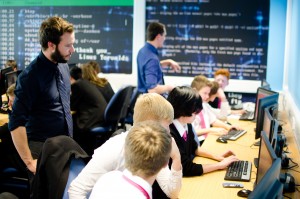
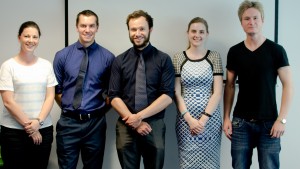
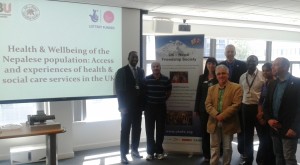
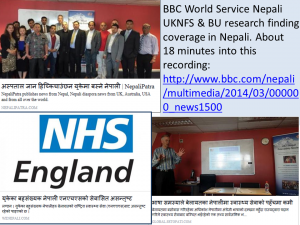 uth Asian and broader Black & Minority Ethnic (BME) communities in the UK.
uth Asian and broader Black & Minority Ethnic (BME) communities in the UK.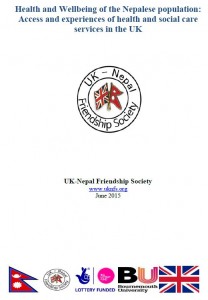





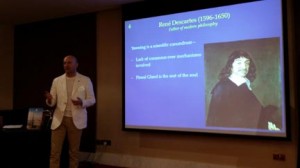





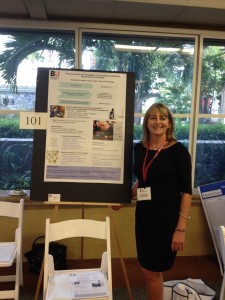
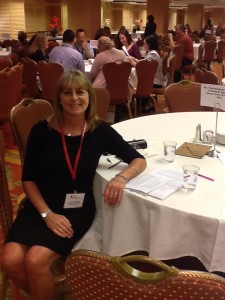



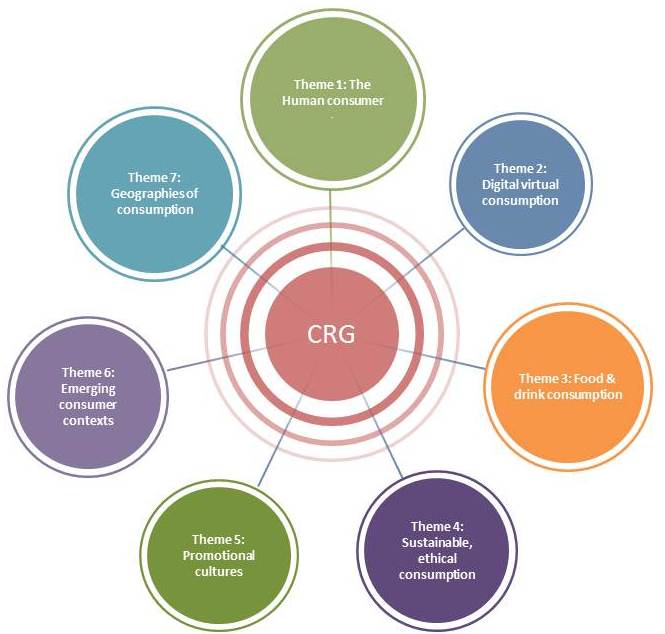












 Connecting Research with Practice: FoodMAPP Secondment in Austria and France
Connecting Research with Practice: FoodMAPP Secondment in Austria and France Health promotion paper read 8,000 times
Health promotion paper read 8,000 times The Beautiful Work Challenge: On Birth
The Beautiful Work Challenge: On Birth Free event on Solutions to Inequalities in Dementia Diagnosis and Care
Free event on Solutions to Inequalities in Dementia Diagnosis and Care MSCA Postdoctoral Fellowships 2025 Call
MSCA Postdoctoral Fellowships 2025 Call ERC Advanced Grant 2025 Webinar
ERC Advanced Grant 2025 Webinar Horizon Europe Work Programme 2025 Published
Horizon Europe Work Programme 2025 Published Horizon Europe 2025 Work Programme pre-Published
Horizon Europe 2025 Work Programme pre-Published Update on UKRO services
Update on UKRO services European research project exploring use of ‘virtual twins’ to better manage metabolic associated fatty liver disease
European research project exploring use of ‘virtual twins’ to better manage metabolic associated fatty liver disease